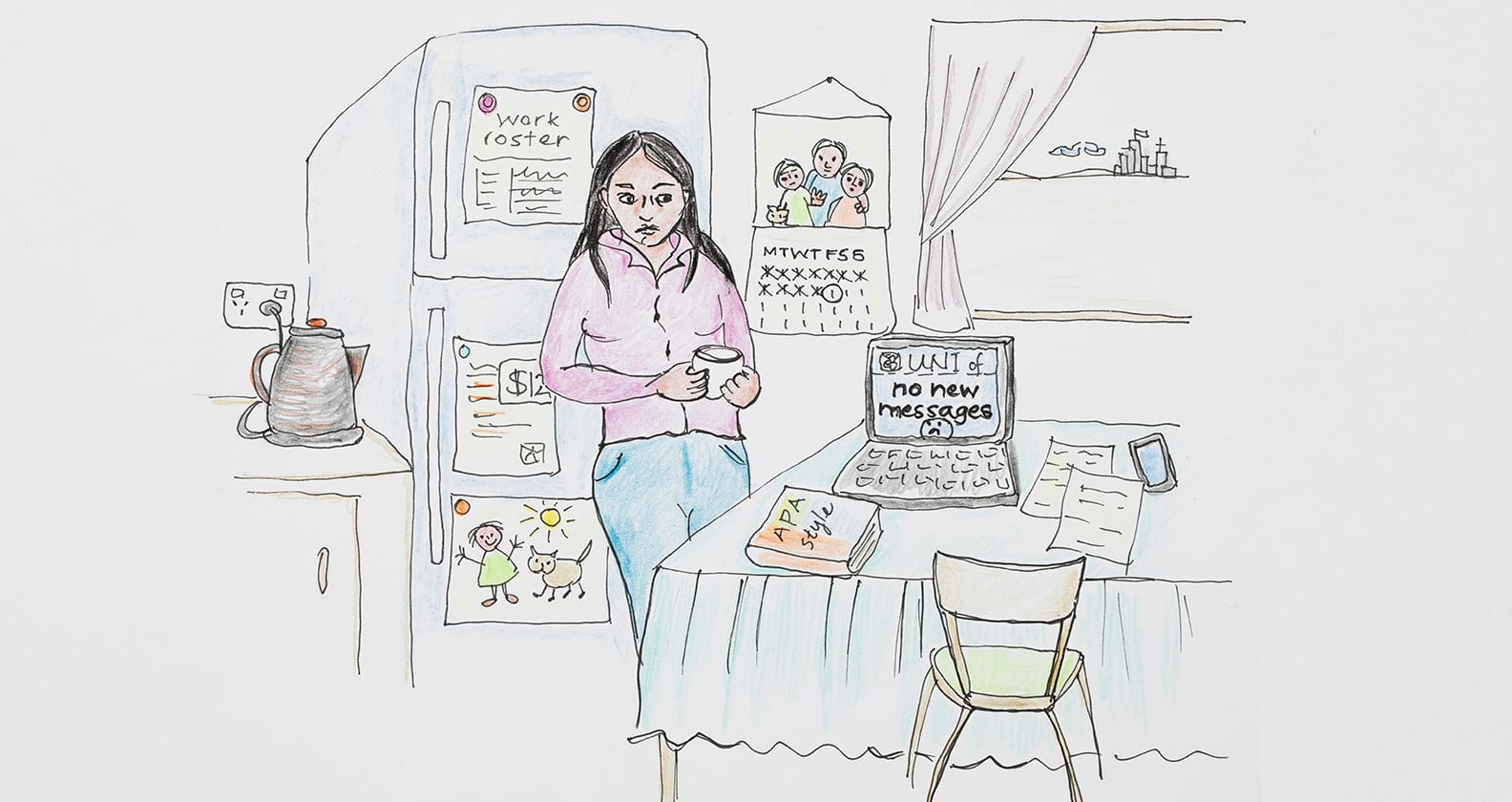A new report finds that almost half of regional and remote mature-age university students in Australia are considering deferring or withdrawing, citing a lack of university support.
The report describes several challenges faced by over-21s who live in regional areas like the Gascoyne, the Far North and the Eyre Peninsula, and represent about 12% of the national domestic student undergraduate population.
Produced by the National Centre of Student Equity in Higher Education (NCSEHE), based at Curtin University, the report found that almost half of the 1,800 participating students were considering withdrawing or deferring from their university course, due to reasons such as stress or feeling overwhelmed by their study load.
The report’s author, Dr Nicole Crawford, was shocked and saddened by the results.
“It’s deeply concerning. It shows that a lot of this cohort struggle with juggling the demands of their university studies with parenting, work and community responsibilities,” she says.
She notes several factors that impact the mental wellbeing of these students, including their interactions with their university course, curriculum, peers and tutors, as well as factors outside of university, such as financial challenges and accessing the internet.
Another concerning finding was that nearly a third of the participants didn’t have a fellow student or staff member at the university they could turn to for support. Further analysis revealed that students who studied part-time or online were more likely affected.
“I interviewed one online student who just struggled in every way imaginable. She would be doing an exam online at home and her internet would cut out. She also had no idea how to write an academic essay, and she didn’t know where to find academic learning support,” Dr Crawford says.
“These students aren’t asking for large-scale mental health initiatives to improve their wellbeing. They just want to have their basic teaching and learning needs met.”
What can universities do?
Dr Crawford’s report includes recommendations on how universities can enhance their students’ wellbeing and academic success.
One recommendation is for universities to implement Universal Design for Learning practices, to ensure course design, curriculum and assessment deadlines cater for all students – not just those who can attend campus and have no obstacles to their learning.
“If you release your week’s lecture slides online on the prior weekend, for example, you’d not only help students who work during the week, but also students who are deaf and hard of hearing or who are from a non-English speaking background, because they’d have time to study it before the lecture,” says Dr Crawford.
A second recommendation is for greater flexibility in assessment deadlines.
“I’ve talked with students who have been unable to submit an assessment by the due date because they’ve had a baby, their roster changed or they had been impacted by a large bushfire, and they weren’t granted an extension because their reasons weren’t written in the rules,” she says.
Other recommendations include creating and promoting university transition workshops, where students can learn key academic skills such as referencing and managing assessments before they start their course, and ensuring tutors are adequately resourced to foster meaningful connections with their online students.
“The simple act of checking in with a student and asking if they are okay, or just even responding to an email or discussion post, helps to create a connection and shows you care.”

Actioning the recommendations
The NCSEHE report has already drummed up significant interest among policymakers. In April 2020, Dr Crawford presented two NCSEHE webinars, each of which were attended by more than 400 people. She has since presented her findings at 20 higher education webinars and conferences in Australia and internationally.
The report’s recommendations coincide with dramatic changes to the Australian university sector, in which more institutions are showing a commitment to improving student wellbeing. In the past year, Orygen, The National Centre of Excellence in Youth Mental Health, launched Australia’s first University Mental Health Framework, to provide guidelines on how universities can create better outcomes for students. The sector is also searching for ways to improve their online student experiences after the effect of COVID-19 lockdowns.
NCSEHE Director Professor Sarah O’Shea says the report’s recommendations have clearly resonated with the Australian and international university sectors.
“Dr Crawford’s report articulates measures for inclusive and effective learning and teaching. These approaches can provide a counterbalance to the many stressors that can lead to students dropping out or deferring their university studies,” she says.
“The commencement of the university semester in what may well be another challenging year for our students means that the research will have a far-reaching, practical impact. Now more than ever, institutions need to both effectively communicate with and support their student populations.”
Researcher profiles
Dr Nicole Crawford is a senior research fellow at the NCSEHE, Curtin University. From 2019–20, she conducted a NCSEHE Equity Fellowship to investigate ways of enhancing regional and remote mature-age student success. Previously, she worked at the University of Tasmania.
Professor Sarah O’Shea is the Director of NCSEHE. She has more than 25 years of teaching and research experience in the higher education sector. Her research has helped advance understanding of how under-represented student cohorts manage competing identities and achieve success at university.



